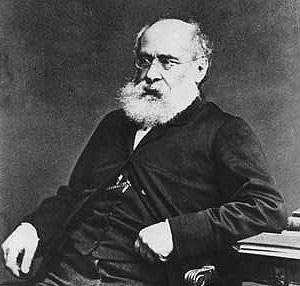|
|
|
|
|
|
|
|
![]()
 |
English Novelist
1815-1882
Trollope enjoyed the earlier Dickens novels -- specifically Pickwick, Oliver Twist, Nicholas Nickleby, and The Old Curiosity Shop -- and decidedly did not care for Little Dorrit and most of those that followed. As to individual characters, he loved the "impossible dear old duller," Mr. Pickwick, and greatly admired Inspector Bucket in spite of his lack of enthusiasm for Bleak House and its real heroine, Esther Summerson. As a dedicated and effective civil servant, however, Trollope deeply and permanently resented Dickens's attacks on the British Civil Service via the "Circumlocution Office" in Little Dorrit. References to Dickens, direct or indirect, as "Mr. Popular Sentiment" and similar labels occur frequently in both Trollope's novels and his correspondences.
Despite this literary animosity, Trollope's personal relationship with Dickens seems to have been at least civil, for the most part, if not friendly. (Oddly, he was tenuously connected with Dickens; his brother, Tom Trollope, married the sister of Ellen Ternan. This did nothing to improve the relationship, although Tom was a close friend and great admirer of Dickens.) Anthony Trollope wrote a lengthy obituary when Dickens died, which, as Dickens scholar Michael Slater has observed, indicated his "disapproval of Dickens's art" while paying fitting respect to him as a man and simultaneously rejecting his political outlook. In a letter written after the appearance of Forster's biography he describes Dickens as "a powerful clever, humorous, and in many respects, wise man," but "very ignorant and thick-skinned...not a hero at all."
In his own autobiography, not published until after is death, Trollope recognized the vigor of Dickens's character and his moral influence, but could not accept the journalistic and melodramatic features of Dickens's works.
Submitted by Berthold Levy, Philadelphia Dickens Fellowship, based on Professor Michael Slater's address to The Trollope Society, November 1995.